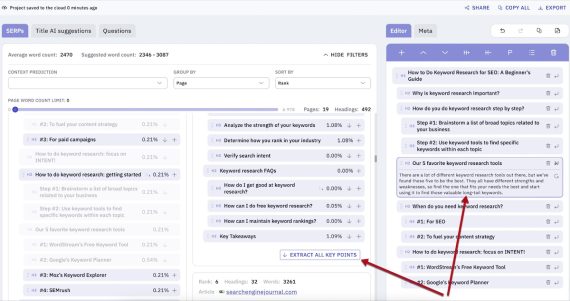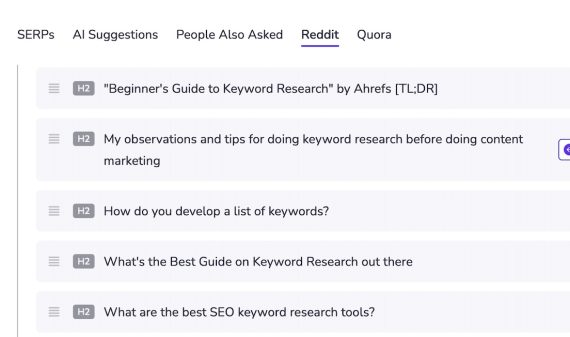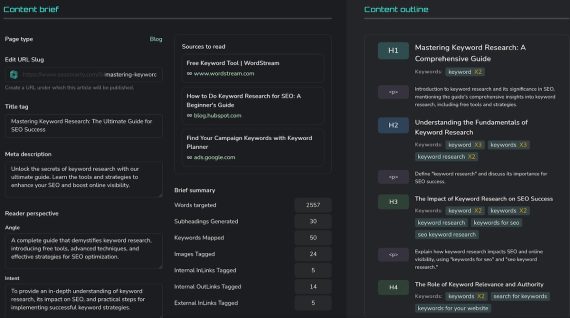A content brief is a summary of what to include in an article. It provides info for search engine optimization, such as primary and secondary keywords and questions and answers. Briefs help writers and editors ensure an article addresses essential components.
Generative AI streamlines the making of content briefs and enhances the SEO benefits by using data from Google’s organic search results and elsewhere.
Here are three AI tools to consider.
Keyword Insights
Keyword Insights uses AI to discover and cluster keywords, optimize for intent, and generate content, including briefs.
To create a brief, provide your target keyword and language. The tool then scrapes headings from Google’s top 20 ranking pages, “People also ask” boxes, Reddit, and Quora.
For every competing article, click “Extract all key points” for a detailed outline and inclusion in a brief. For every brief, generate the article’s title and meta description.
Review the analysis and choose the subheadings. Then write an original article — don’t direct the tool to generate it.
Keyword Insights offers a four-day trial for $1. After that, it’s $58 per month.

Keyword Insights scrapes headings from the top 20 ranking pages, “People also ask” boxes, Reddit, and Quora. Click image to enlarge.
MarketingBlocks
MarketingBlocks is a comprehensive, AI-powered content suite. To create a brief, enter a keyword and target country. The tool then pulls info from multiple sources (similar to Keyword Insights), including:
- Google’s search results — an overview of each ranking article with its heading and subheadings,
- Questions from “People also ask,”
- Reddit and Quora discussions.
Select headings and subheadings from the tool’s output to form the brief. (Users cannot work on multiple briefs simultaneously, however. I would have pulled headings from one brief to start another for a separate article.)
With a completed outline, MarketingBlocks will generate a title, meta description, and even content for each section, although, again, original writing from humans is best.
The tool offers a five-day free trial, credit-card required. Paid plans start at $47 per month.
Swiftbrief
Swiftbrief specializes in content briefs. To start, provide a target audience — I used “small business owners” — and a topic following from the tool’s suggestions:
- Be specific. A one-word topic will lead to little benefit. Three to five words is best.
- Avoid “stop words” — e.g., “of,” “for,” “as,” “a,” “about,” “the,” “by,” and similar.
- Use question modifiers such as: “how,” “what,” “who,” “when,” “where,” and “why.”
Swiftbrief accesses Google search-result pages and creates the entire brief automatically without requiring the manual selection of subheadings. It lists additional info to consider — sources, the goal, requirements for internal and external links — and allows exporting the entire brief to Google Docs.
Swiftbrief offers a seven-day free trial, no credit card required. After that, plans start at $64 a month.






